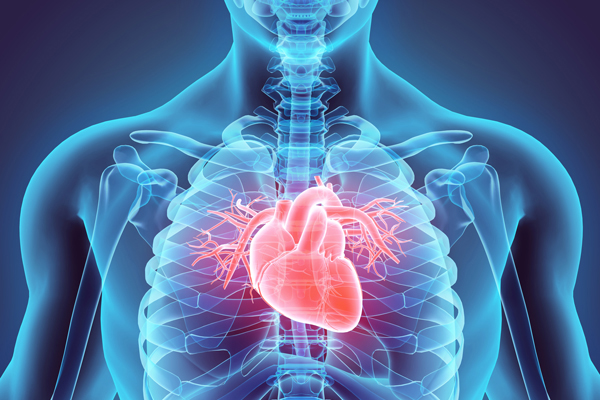
-
cold 感冒
a common infection, especially in the nose and throat, that often causes a cough, a slight fever, and sometimes some pain in the muscles:
- I’ve got a cold.
-
She caught a cold at school.
- (UK informal) Don’t come near me - I’ve got a stinking/streaming cold (= extremely bad cold).
-
fever 发烧
a medical condition in which the body temperature is higher than usual and the heart beats very fast:
- He’s got a headache and a slight fever.
-
flu 流感
Pan seared scallons 香煎扇贝
-
headache 头痛
Brown all sides of the steak
-
stomachache 胃痛、肚子痛
With braises, where you’re adding the least amount of liquid required to cook the meat or vegetables, stews require full submersion, and usually call for the meat or vegetables to be cut into unifiorm pieces for even cooking.
-
red braised pork belly 红烧肉
-
Bring the water to a boil, turn down to medium low heat, and let it simmer for 40 minutes.
Because it preserves all the nutrients in your food.
-
-
Toothache 牙痛
- Blanch the vegetables before stir frying. It
-
indigestion 消化不良
-
Do you suffer from indigestion after you have eaten?
-
You’ll give yourself indigestion if you swallow your dinner so quickly.
-
-
anaemia 贫血
a medical condition in which there are not enough red blood cells in the blood:
- The main symptoms of anaemia are tiredness and pallor.
-
stroke 中风
a sudden change in the blood supply to a part of the brain, sometimes causing a loss of the ability to move particular parts of the body:
-
She suffered/had a stroke that left her unable to speak.
-
He’s been fairly poorly since having a stroke in January.
-
He suffered a stroke in 1988 that left him unable to speak, but his mental capacity wasn’t affected.
-
-
appendicitis 阑尾炎
an illness in which the appendix is infected and painful and usually needs to be removed in an operation:
- She had her appendix out (= medically removed) last summer.
-
arthritis 关节炎
a serious condition in which a person’s joints (= the places where two bones are connected) become painful, swollen, and stiff:
- In later life she was crippled with arthritis.
-
enteritis / gastroenteritis 肠炎
an illness that causes the stomach and bowels to become swollen and painful
-
fracture / break 骨折
-
She fractured her skull in the accident.
-
Two of her ribs fractured when she was thrown from her horse.
-
Your arm’s got a fracture.
-
Old bones break easily.
-
-
chicken pox 水痘
-
measles 麻疹
a disease, especially of children, that causes a high temperature and small red spots that cover the whole body
- All our children have had the measles.
-
heart disease 心脏病
-
diabetes 糖尿病
a medical condition in which the body cannot produce enough insulin to control the amount of sugar in the blood
-
cancer 癌症
a serious disease in which growths of cells, also called cancers, form in the body and kill normal body cells. The disease often causes death.
-
fungus 脚气
an organism (= a living thing) that is similar to a plant without leaves, flowers or green colouring, and that usually grows on plants or on decaying matter. mushrooms and mildew are both fungi.
-
pneumonia 肺炎 bronchia 支气管
a serious illness affecting one or both lungs that makes breathing difficult
- She died from bronchial pneumonia.
-
inflammation 炎症
a condition in which a part of the body becomes red, painful and swollen (= larger than normal) because of infection or injury
-
The doctor’s notes recorded inflammation of the ear.
-
I used a cream to reduce the inflammation.
-
-
insomnia 失眠
the condition of being unable to sleep
- to suffer from insomnia
-
nausea 恶心
the feeling that you have when you want to vomit, for example because you are sick or are shocked or frightened by something
-
A wave of nausea swept over her.
-
Nausea and vomiting are common symptoms.
-
-
leukemia 白血病
a serious disease in which too many white blood cells are produced, causing weakness and sometimes death
- The newspapers are full of stories of leukaemia clusters near nuclear establishments.
More Examples:
-
He is under the weather. 他生病了。
-
He has been shut-in for a few days. 他生病在家几天了。
-
He feels exhausted most of the time. 他经常觉得非常疲惫。
-
His head is pounding. 他头痛。
-
He feels light-headed. 他觉得头晕。
-
He feels as though everything around him is spinning. 他感到天旋地转。
-
He has been lacking in energy for some time. 他感觉虚弱有一段时间了。
-
He has bouts of uncontrollable coughing. 他无法控制的一阵阵咳嗽。
-
He has bouts of abdominal pain. 他一阵阵的肚子痛。
-
He has a soure throat and a stuffy nose. 他嗓子痛,而且鼻子不通气,。
-
It is usually hard for him to fall asleep when he goes to bed at night.
-
He has a feeling of tightness in the chest. 他觉得胸部闷闷的。
-
The tooth hurts when he bites down on it. 他咬东西时,牙齿就痛。
Read More:
-
disease 表示“疾病”,通常指具体的“疾病”(可数)。如:
Most diseases could be wiped out. 多数疾病是可以消灭的。
I caught the disease from you. 这病我是从你那传染来的。
注:有时指疾病的总称(不可数),即通称的“疾病”。如:
Rats spread disease. 老鼠传染疾病。
Cleanliness helps prevent disease. 清洁有助于预防疾病。
-
illness 和 sickness 常可通用,它们主要用于表示生病的时间或因病(disease)导致的不健康状态等。如:
He can’t come because of illness. 他因病不能来。
He died after a long illness. 他死之前病了很久。
She is cheerful in spite of her illness. 她尽管有病,但还是快乐。
-
用于医学上表示各种病称时,通常用 disease。如:
contagious diseases 传染病
English disease 气管炎
heart disease 心脏病
lung disease 肺病
a nervous disease 神经病
a sex disease 性病
skin disease 皮肤病 等等
注:有个别搭配也用 illness。如:
mental illness / sickness 精神病
胃不调 upset stomach
觉食物积滞胃中 feel heavy on the stomach
有点恶心 have (experience) some nausea
偶而恶心和呕吐 develop occasional nausea and vomiting
